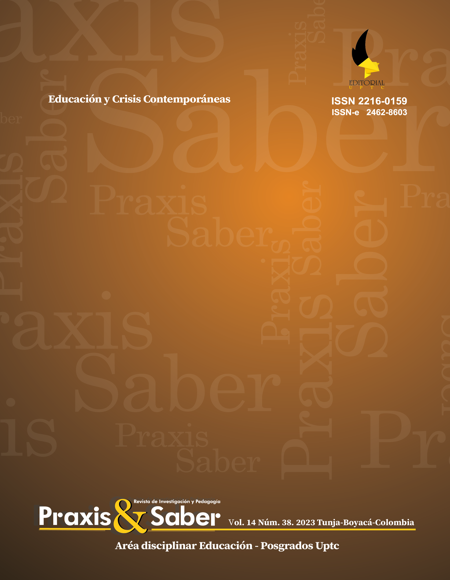Public education in pandemic-neoliberal times: the intellectual-formative role of the school principal

Abstract
The article addresses how much the connection between the advance of individualistic entrepreneurship and the outbreak of the pandemic contributes decisively to intensify the bureaucratic-administrative profile of the school principal, by pushing them to withdraw from their intellectual-formative role, in the name of bureaucratic-administrative functions, deprived of their cultural meaning. In this context, the article supports the hypothesis that the clarification of this intellectual-formative role implies a critical dialogue with the classical pedagogical tradition, especially by understanding the concept of human formation as preparation, which is originated from the ancient Graeco-Latin meaning. It also shows how the ethical-political dimension emerges from this dialogue, which is indispensable to make the form of governance exercised by the school principal democratic and participative.
Keywords
COVID-19, public education, school principal, training, preparation
References
- Dalbosco, C. A. (2017). Formação humana como prática de si: a figura do mestre. In: Trevisan, A. L.; Tomazetti, E. M.; Rossatto, N. D. (Orgs.). Filosofia e educação: ética, biopolítica e barbárie. Curutiba: Appris Editora, p. 287-307.
- Dalbosco, C. A. (2020a). A filosofia, a escola e o experimentum formativo: a libertas como cultivo da soberba inflamada. In S. Gallo, & S. Mendonça (Orgs.). A escola: uma questão pública. São Paulo, SP: Parábola.
- Dalbosco, C. A. (2020b). Violência humana e o papel do ócio estudioso. In: Trevisan, A. L.; Tomazetti, E. M.; Rossatto, N. D. (Orgs.). Filosofia e Educação. Escola, violência e ética. Curitiba: Appris.
- Dalbosco, C. A. (2021). Educação e condição humana na sociedade atual. Formação humana, formas de reconhecimento e intersubjetividade de grupo. Curitiba: Appris Editora.
- Dalbosco, C. A.; Filho, F. C. dos Santos; Cezar, L. (2022). O. Desamparo humano e solidariedade formativa: crítica à perversidade neoliberal. Educação & Sociedade, 43 (e244449). https://doi.org/10.1590/ES.244449 DOI: https://doi.org/10.1590/es.244449
- Dardot, P. & Laval, C. (2016). A nova razão do mundo. Ensaio sobre a sociedade neoliberal. São Paulo: Boi Tempo.
- Dowbor, L. (2018). A era do capital improdutivo: a nova arquitetura do poder, sob dominação financeira, sequestro da democracia e destruição do planeta. São Paulo: Companhia das Letras.
- Foucault, M. (2004). A hermenêutica do sujeito. São Paulo: Martins Fontes.
- Foucault, M. (2022). Nascimento da biopolítica. São Paulo: Martins Fontes.
- Laval, C. (2004). A escola não é uma empresa. O neoliberalismo em ataque ao ensino público. Londrina: Editora Planta.
- Liessmann, K. P. (2011). Theorie der Unbildung. Die Irrtümer der Wissensgesellschaft. München/Zürich.
- Koch, L. (2012). Wissen und Kompetenz. In: Vierteljahrschrift für wissenschaftliche Pädagogik, H. 1, S. 454-463. DOI: https://doi.org/10.30965/25890581-08803008
- Masschelein, J. & Maarten, S. (2018). Em defesa da escola: uma questão pública. Belo Horizonte: Editora Autêntica.
- Nussbaum, M. (2015). Sem fins lucrativos. Por que a democracia precisa das humanidades. São Paulo: Martins Fontes.
- Santos, B.S. (202). A cruel pedagogia do vírus. Coimbra: Almedina.
